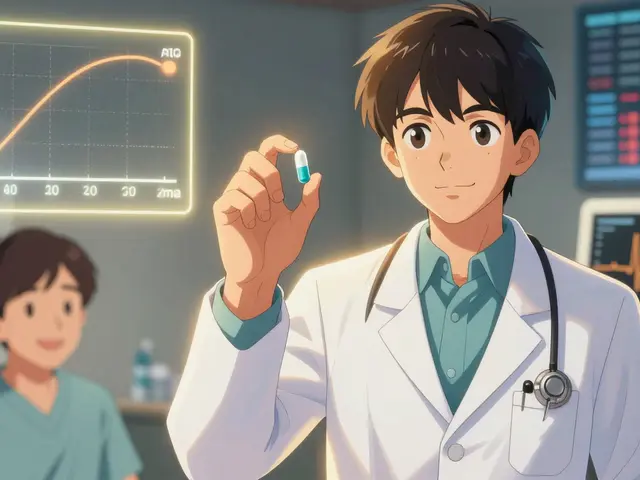Chronic Lymphocytic Leukemia (CLL): What You Need to Know
CLL is the most common leukemia in adults. Many people with CLL feel fine at first — often it’s found during a routine blood test. That doesn’t mean you should ignore it. Knowing the signs, tests, and treatment choices helps you make smart decisions and stay in control.
Diagnosis and Staging
If your doctor suspects CLL, they’ll start with a complete blood count (CBC). High numbers of certain white blood cells often point to CLL. From there, a blood smear, flow cytometry, and genetic tests (like FISH) help confirm the diagnosis and predict how the disease might behave.
Staging looks at lymph node size, spleen size, blood counts, and symptoms. Some people have very slow disease that needs no treatment for years. Others need therapy sooner. The key is regular monitoring so any change is caught early.
Treatment Options & Living with CLL
“Watch and wait” is a common first step if you’re not having symptoms. When treatment’s needed, options include targeted therapies, oral drugs, chemo-immunotherapy, and sometimes stem cell transplant for younger patients with aggressive disease.
Targeted drugs like BTK inhibitors (examples: ibrutinib, acalabrutinib) and BCL-2 inhibitors (venetoclax) have changed CLL care. They work differently than traditional chemo and often cause fewer long-term side effects. Your doctor will pick a plan based on your age, genetics of the cancer, other health issues, and what you prefer.
Side effects vary by treatment. Common issues include fatigue, infections, bruising, and digestive upset. Talk to your team about prevention: vaccines, infection precautions, and when to call for fever or other red flags. Keep a simple symptom log — it helps your doctor spot trouble early.
Practical daily tips: eat balanced meals, stay active as you can, avoid close contact with sick people, and keep up routine care like dental visits and skin checks. Mental health matters too — anxiety and fatigue are real. Look for local support groups or online communities where people share what works.
Ask about clinical trials. New drugs and combinations appear often in CLL research, and trials can give access to promising treatments. If you’re unsure, a second opinion from a hematologist specializing in CLL is worth it.
When to see a doctor: new or worsening fatigue, unexplained fevers, night sweats, sudden weight loss, or rapidly growing lymph nodes. Those are signs to get evaluated quickly.
CLL can feel scary, but many people live years with good quality of life. Keep your healthcare team close, track your labs and symptoms, and don’t be shy about asking questions. If you want, I can point you to basic explainers on common CLL drugs or a checklist to bring to your next clinic visit.

The Importance of Support Systems for Chronic Lymphocytic Leukemia Patients
Living with chronic lymphocytic leukemia (CLL) can be incredibly challenging. I've come to realize that having a strong support system is essential to cope with the emotional and physical aspects of this disease. Friends, family, and healthcare professionals play a vital role in providing encouragement, advice, and assistance throughout the journey. Connecting with others facing similar situations through support groups can also be a valuable source of strength and understanding. In short, leaning on each other can make all the difference in fighting CLL and maintaining a positive outlook on life.




